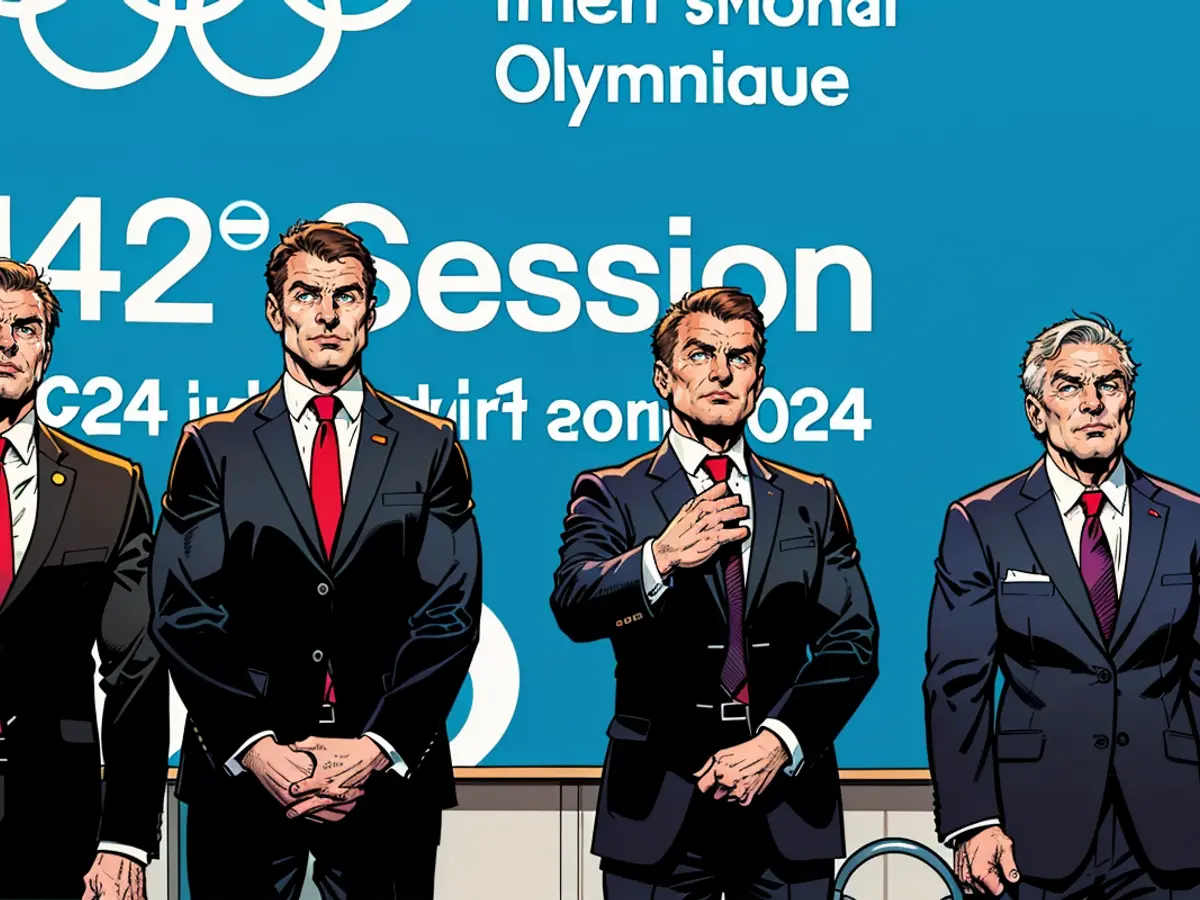IOC chooses Olympic host - Winter Games 2030 in French Alps
The French Alps will host the Winter Games 2030. This decision was made by the International Olympic Committee (IOC) during its General Assembly before the Summer Games in Paris. However, the IOC's approval came with the condition that the French government and local authorities guarantee the remaining financial and organizational commitments. Only then will the host contract be signed by the IOC.
The choice was considered a foregone conclusion before the 142nd IOC session. France had already been named the preferred candidate in November. The IOC leadership had recommended the approval in June at the General Assembly. For 2034, the IOC plans to award the Winter Games for the second time to Salt Lake City in the US state of Utah.
France has ample Olympic experience. Winter Games have been held in the French Alps in Chamonix (1924), Grenoble (1968), and Albertville (1992). Paris is hosting the Summer Games for the third time, in 1900, 1924, and now.
Planned Winter Games 2030 in regions Provence-Alpes-Côte d'Azur and Auvergne-Rhône-Alpes. Several ice events are planned in Nice. The concept primarily involves the use of existing competition venues.
Due to political turbulence in France and advanced parliamentary elections, the necessary guarantees from the government and authorities for the Winter Games project have been delayed. Currently, there is only an interim government. French President Emmanuel Macron will not name a new prime minister until after the Olympics. In the National Assembly, no political faction has a majority after the election two weeks ago.
David Lappartient, head of France's National Olympic Committee, had previously assured: "Even if there is no majority in the parliament, there is a strong majority for the Games." IOC President Thomas Bach confirmed: "We would not vote if we didn't feel that way." Macron reiterated during the IOC presentation: "You can trust us, we will be there."
Switzerland could be the host in 2038
The next Winter Games in 2026 will take place in Milan and Cortina d'Ampezzo, Italy. Switzerland is expected to receive preferential treatment if it re-applies for the 2038 Games, according to the IOC's wishes. The Swiss bid, like the French and American projects, had also received an early rejection from the IOC selection commission. A German Winter Games bid had failed most recently with Munich for 2022 due to public opposition.
Long-term, the Winter Spectacle is a problem area for the IOC due to climate change. According to calculations by researchers from 2040, only ten countries will be snowy and icy enough to host Winter Games.
- Despite France's success in hosting previous summer games in Paris in 1900 and 1924, the French Alps will be the site of the upcoming Winter Games 2030.
- The International Olympic Committee (IOC) made this decision during the General Assembly before the Summer Games in Paris, with the condition that the French government and local authorities meet their financial and organizational commitments.
- Initially, France was deemed the favorite to host the Winter Games 2030, even before the 142nd IOC session, and the IOC leadership had recommended approval in June.
- In fact, France has substantial Olympic experience, as Winter Games have been previously held in Chamonix (1924), Grenoble (1968), and Albertville (1992) in the French Alps.
- The planned Winter Games 2030 will occur in regions Provence-Alpes-Côte d'Azur and Auvergne-Rhône-Alpes, with several ice events taking place in Nice.
- However, recent political instability in France and advanced parliamentary elections have delayed the formal guarantees needed from the government and authorities, causing a delay in the signing of the host contract by the IOC.
- The ongoing political climate in France poses concerns, as there is currently an interim government, and French President Emmanuel Macron has yet to appoint a new prime minister post-Olympics.
- Despite these challenges, the IOC remains confident in France's ability to host the Winter Games, with David Lappartient, head of France's National Olympic Committee, and IOC President Thomas Bach expressing support for the project.







